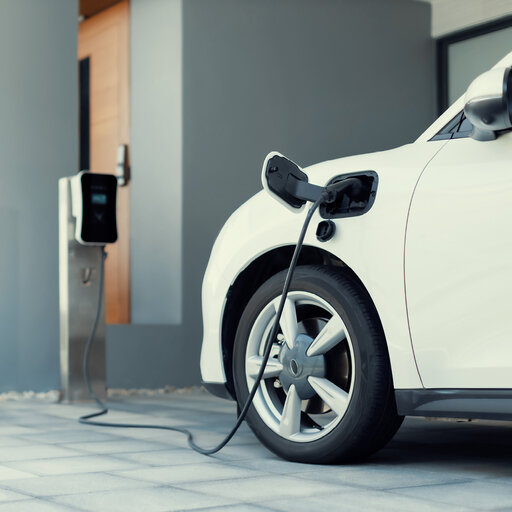
Chris Green
CEO AND FOUNDER

6 min read
Despite what’s happening with the ZEV mandate, car finance and any one of the many other challenges the industry faces, there is absolute positivity from our latest set of data that shows the message from motorists is loud and clear: they’re ready to buy in 2025, but only on their terms.

This upcoming year has the potential to be pivotal for the automotive industry, especially for brands willing to listen to their customers’ changing demands. Our insights show a significant interest in low-emission vehicles, with hybrid models taking centre stage. Still, this appetite can absolutely be tempered by a collective hesitation to buy driven by pricing, government indecision and longstanding anxieties around battery electric vehicle (BEV) capabilities.
Consumer demand with conditions: “I’ll buy, but meet me halfway”
A whopping 60% of the motorists we surveyed plan to change their car in 2025, showing strong car-buying intent.
But this willingness to change vehicle needs to be considered in the context that consumers aren’t desperate to upgrade. In fact, 57% of drivers are now willing to keep their cars longer than in the past, a stat which mirrors a broader trend toward extended ownership. According to the Society of Motor Manufacturers and Traders (SMMT), average car ownership increased from 8 to 9 years between 2021 and 2022.
This shift in mindset shows that while the desire for a new car exists, consumer expectations have changed, and it will take an eye-catching model, price or incentive to generate a conversion - especially given brand loyalty is at an all-time low, and the range of choice is high.

Hybrid’s time to shine, but marketing strategies have to work
Among low-emission options, hybrid vehicles are what consumers want to see, feel, test drive and buy. 39% of prospective buyers say they will choose a hybrid as their next car, compared with 28% who want petrol and 15% who plan to go fully electric.
That 15% figure would undoubtedly be higher, but the ambivalence of successive governments on BEV policies continues to dampen enthusiasm. Indecision has made 36% of motorists less likely to consider electric, while 79% believe manufacturers have been unfairly treated in the shift toward EVs.
But, given that 6 in 10 are expecting to change their car next year and over half of those will be choosing a hybrid or electric vehicle, it’s vital there are effective marketing strategies in play from those agencies who want to shift the dial.
Those who have invested in marketing are clearly seeing a positive shift in perceptions, with some Asian brands, notably Kia and Hyundai, enjoying increasing favourability.
48% of consumers now view Kia more positively than 12 months ago, while 35% say the same for Hyundai. Chinese brands are also making strides in the UK market, with 1 in 5 drivers reporting improved perceptions, thanks partly to increased visibility, model variety, and high-profile sponsorships like BYD’s involvement in Euro 2024.
For the established players, maintaining loyalty has become a bigger challenge. The number of consumers willing to consider only one brand has plummeted from 20% two years ago to just 9% today. This evolving loyalty landscape means that while legacy brands need to redouble their focus on customer retention, new entrants have a unique chance to capture a previously untapped customer base.
Overcoming BEV barriers: Educating to bridge the gap
Price remains a sticking point for most buyers, with 75% citing it as a barrier in a stat largely unchanged from previous years. A substantial number of consumers (73%) still voice concerns over range limitations, a sentiment that has also persisted year on year. In comparison, concerns about the resale value of electric cars have risen by 5%, reflecting concerns over the much publicised depreciation.
Notably, many top consumer concerns about BEVs - battery longevity, range, and resale value - have remained the same over the past two years. Still, one emerging bright spot is that awareness of technological advancements could go a long way in changing minds.
That’s because 58% of consumers said they’d be more inclined to consider an BEV if they knew about recent innovations, which suggests that heavy investment in educational campaigns around new battery technologies, expanded charging infrastructure, and incentives could be hugely valuable.
So, as we look ahead to next year, the key takeaway is clear. There is a huge market opportunity, but against the backdrop of challenging conditions, the brands and dealers communicate effectively with new and existing customers, who will be the ones left smiling.

